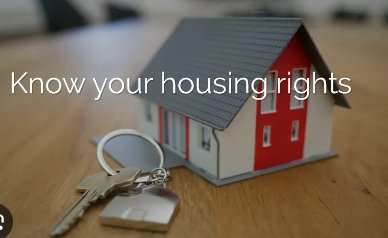As a tenant of an apartment, familiarize yourself with your rights and obligations, including the terms of the lease, maintenance duties, privacy rights, and conflict resolution procedures. If you rent an apartment and are a tenant, you have to be aware of your rights and obligations at that point to help you get along with your landlord. Moreover, understanding your rights and obligations can help you increase your chances of a happy life. Taking your time and knowing your tenant’s rights and obligations will help you to feel confident as you negotiate your rental path. Discover more about what your tenancy entails by reading on. Responsibilities residing
Table of Notes
Your Right to Live in a Comfortable Home. First of all, you ought to be aware of your rights as a tenant of a livable house. This feature shows that, as a tenant, you have the right to live in a rental property free of possible health risks in addition to being safe and clean. Having said that, your landlord has to ensure the property satisfies the minimum requirements of habitability, including running water, heating, and electrical services.
Your possible landlord also has to guarantee necessary house maintenance. You are entitled to prompt maintenance as a tenant; your landlord is obliged to take care of important problems, including a leaking roof, pest invasion, etc. It’s crucial to note here that if you are moving into an apartment with your pet, you have to ask your landlord pertinent questions, like you can have pets in apartments to help you avoid possible problems down the road.
You Have the Right to Privacy
Apart from your basic right to live in a suitable house, you also have the right to privacy. With that said, as a renter, you have the right to privacy within the rented flat. Before you start living in your rental property, the landlord is responsible for giving you a proper notice, except in emergencies. You should expect the notification time to range from one to two days.
You Have the Right Against Discrimination.
As a tenant, you are legally protected against discrimination based on your race, color, sex, gender, religion, disability, etc. In other words, landlords must rigorously conform to fair housing regulations and also provide equal housing opportunities to all possible candidates.
As a tenant, you must realize your rights and duties so that you can have a pleasant rental experience. Knowing your possible rights and obligations can help you to clearly see what is expected of you.
You Have the Right to A Clear Lease Agreement
If you are a tenant, you have the right to acquire a transparent and properly written lease agreement that describes the terms and circumstances. The terms and conditions should include the payable rent amount, payment due date, rules, policies, lease period, etc. It is crucial to emphasize here that upon lease termination, you have the right to reclaim your security deposit.
Conversely, your obligations usually consist in keeping cleanliness, paying rent on time, documenting required repairs, and honoring common areas and the rights of your neighbors.
Appreciating Your Tenant’s Responsibilities
Now that you know your rights as a renter, it is important to consider your potential duties, too. Firstly, you are accountable for paying your rent on time according to the date indicated in the lease agreement. Late payments might lead to costs, too. You also have to keep your rental property neat to show.
Abiding by the lease terms is mandatory, too. You ought to respect your neighbors and also limit yourself to the property policies. As a tenant, you are responsible for respecting your neighbors and keeping the noise levels down Responsibilities residing
Polite surrounding
Every renter of an apartment should be aware of and actively control the special mix of rights and obligations that come with it. Knowing your legal rights enables you to make wise decisions when problems develop in addition to helping you guard yourself from abuse or neglect. Likewise, keeping your obligations guarantees a calm, polite surrounding and helps to maintain good connections with your neighbors and landlord.
As a tenant, your rights often include those to privacy, a secure and livable living space, and defense against wrongful eviction. Usually assured by municipal housing rules, these rights should be precisely expressed in your lease or rental agreement Responsibilities residing
Thoughts on Final Notes
Knowing your rights guarantees that you won’t be taken advantage of, and knowing your obligations helps you stay out of possible legal or financial hot zones. This dual consciousness also helps one live in a more pleasant and stable environment. Furthermore, it is important the knowledge that local laws differ; hence, what is applicable in one city or nation could not be so in another. Important actions are reading your contract attentively, asking questions when unsure, and keeping current on tenant rules in your area.
Being a responsible tenant helps you not just the owner of the property. Understanding and following the limits stated in the rental agreement yields results like a well-kept flat, a good landlord connection, and peaceful coexistence with neighbors Responsibilities residing
Tenant education
It is vital as urbanization, affordability, and lifestyle choices drive apartment living to become more popular. Too frequently, conflicts between renters and landlords result from misunderstandings or ignorance of the lease conditions and pertinent housing legislation.
Tenants who actively educate themselves on their rights and obligations are more likely to handle problems amiably and effectively. Whether you’re appealing a wrongful eviction, requesting quick repairs, or making sure your deposit is refunded, a knowledgeable tenant is standing on strong legal ground. Conversely, by respecting your obligations—rent, maintaining the room in good shape, and honest communication—you help to create a solid home Responsibilities residing
Community
Remember, too, that apartment living is more than just a legal structure. It also relates to belonging to a common community. This covers the following recycling rules, paying attention to noise levels, or simply being polite in common laundry facilities or parking lots. Legal compliance closely relates to respect for others.
In the fast-paced world of today, spending time to understand your lease, review your local tenant laws, and build a polite relationship with your landlord and neighbors will help your apartment to be more than simply a rented space, but rather a real home.
Financial penalties
Should I break my lease? What happens? Leasing breaking could lead to: Financial penalties are akin to losing your security deposit. continuous rent obligation till a new tenant is located by the landlord. Legal repercussions in some circumstances. See your landlord to reduce damage; some are open to negotiations, particularly if you give advance notice. Can I be let go without cause? Mostly, no. Usually, your landlord has to follow legal eviction policies and usually has a good reason in mind, such as non-rent payment behavior.

Knowing Your Rights and Your Responsibilities, residing in an apartment
Lease break.
The lease’s expiration without renewal. Check your local rules, though, as in month-to-month tenancies, landlords may be entitled to end the lease with appropriate notice without stating a specific cause. Are legally binding verbal agreements?
Though difficult to establish, verbal agreements are legally enforceable. Getting all lease terms and communications in writing always makes more sense, therefore, both sides have clear records. Can I split my flat? Local rules and your lease will determine this. Many leases forbid subletting without official landlord’s permission. Always examine your lease and chat to your landlord before subletting Responsibilities residing
Final thought
Can I rearrange the apartment anyway I want? Only if your lease lets you or you have written approval. This entails Unauthorized alterations run the danger of costing your security deposit or resulting in fines. Should I clean an apartment before leaving? As called for in your lease, give written notice. Give the apartment a complete clean-up. Fix anything you ruined. Photographs might help you to document the state. Go back over all access cards and keys. This will help you be sure you get your whole security deposit returned. Where may I find further information regarding local tenant rights?
You can look at:
wall painting
Arranging shelves.
Changing fittings.
Your county or city housing agency.
Websites run by local governments.
Legal assistance groups.
Tenant organisations.
Conclusion
Do I need renters’ insurance? While not legally necessary, renters’ insurance is highly advised. It covers: Personal property destruction or theft. Liability in case someone is injured in your flat. Some landlords may request it as a condition of the lease. Describes “normal wear and tear”? Common wear and tear describes: little scrapes or scratches. carpets or faded paint.The wear on light fixtures. It does not include: wall holes. shattered windows. Pet messes. Damage resulting from abuse or neglect falls on you.
Could my landlord raise rent whenever they want? Usually, rent hikes are under control by the terms of the lease. Local rent control legislation. Usually, before raising rent, landlords have to offer sufficient notice, between 30 and 60 days. A fixed-term lease does not allow the rent to be raised unless specifically allowed Responsibilities residing
FQS
Q1. As a renter of an apartment, what are my fundamental rights?
Get correct notifications for lease termination or rent increases.
Check your local tenant protection rules since regulations differ depending on the area.
- Usually, tenants have rights including
- Live in a somewhat safe and livable environment.
- Timely maintenance and repairs.
- Timely maintenance and repairs.
Q 2. As a tenant, what obligations fall to me?
As a tenant, you have to pay the rent on schedule. Maintaining the property’s cleanliness and good state of condition. nor compromising the apartment’s condition. Noting required repairs for the landlord. Honoring common areas and neighbors. Adhering to the guidelines set by the leasing agreement.
Q 3. Can my landlord come into my unit without authorization?
Generally, no. Except in an emergency, landlords often have to give notice—commonly 24 to 48 hours—before entering. Lack of appropriate notification for entry could violate your right to privacy.
Q 4. Should my landlord neglect required repairs, what should I do?
First, write about the problem. Should the landlord ignore your response? Record everything (dates, pictures, correspondence). Ask your local tenant support organization or housing authority. In some places, you might be permitted to do the repair yourself and deduct the expense or withhold rent, but only if the law allows.
Q 5. Is my security deposit refundable?
- Sure, except
- You owe back-off-of-rent.
The lease agreement was broken by you.
Usually, within a legally mandated period—often 14 to 30 days after you move out—the landlord must return the deposit (with an itemized deduction list if necessary).





Leave a Reply